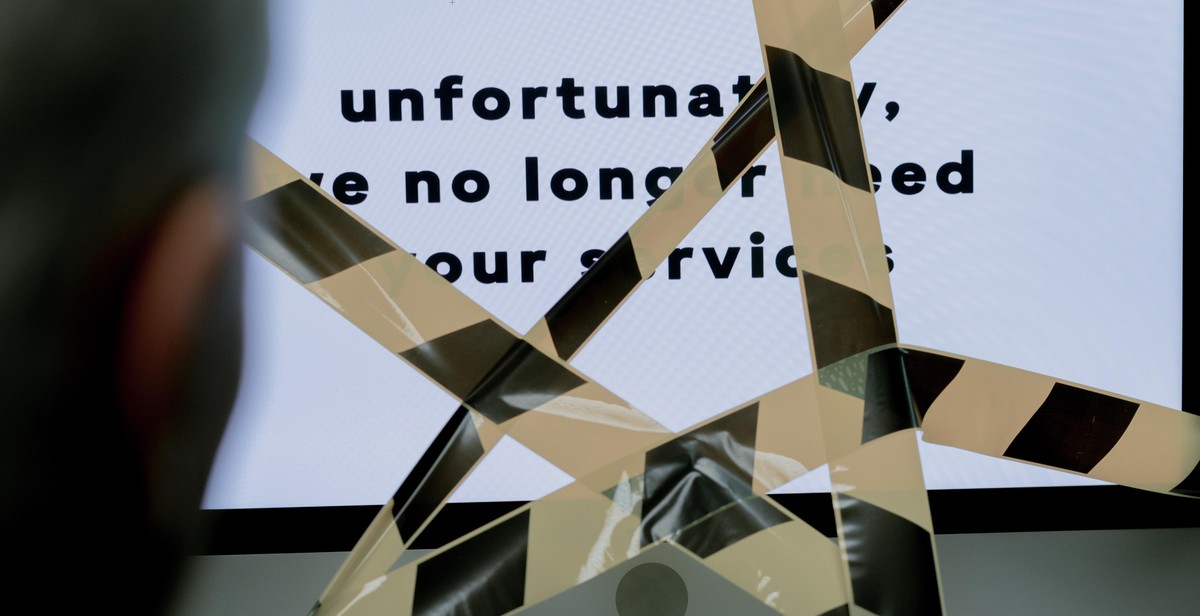Rejection is Not a Death Sentence: Macho Tips for Bouncing Back
As a love and relationships psychology guru, I have seen many people struggle with rejection, including myself. It can be a painful and overwhelming experience that leaves us feeling defeated and unworthy. However, I have learned that rejection is not a death sentence, and there are ways to bounce back from it.
My Personal Experience with Rejection
I remember the first time I experienced rejection in a romantic relationship. I was devastated and couldn’t understand why I wasn’t good enough. It took me a long time to come to terms with the fact that rejection is a normal part of life and not a reflection of my worth as a person.
Over the years, I have learned how to handle rejection in a healthier way. I have developed macho tips that have helped me bounce back and even grow stronger from rejection. These tips have helped me in both my personal and professional life, and I am excited to share them with you.
- Tip #1: Don’t take it personally
- Tip #2: Allow yourself to feel the pain
- Tip #3: Learn from the experience
- Tip #4: Focus on your strengths
- Tip #5: Keep moving forward
By following these tips, you can learn how to bounce back from rejection and come out even stronger. Rejection may feel like a setback, but it can also be an opportunity for growth and self-discovery.

Understanding Rejection
Rejection is a natural part of life that everyone experiences at some point. Whether it’s being turned down for a job, being rejected by a romantic partner, or not being invited to a social event, rejection can be a painful and difficult experience to go through.
The Science Behind Rejection
When we experience rejection, our brains react in a similar way to physical pain. Studies have shown that the same areas of the brain that are activated when we experience physical pain are also activated when we experience rejection. This can explain why rejection can feel so intense and why it can be difficult to bounce back from.
Additionally, rejection can trigger a stress response in our bodies, which can lead to a variety of negative physical and emotional symptoms, such as increased heart rate, heightened anxiety, and decreased self-esteem.
Different Types of Rejection
Rejection can take many different forms, and it’s important to recognize that not all rejections are created equal. Some common types of rejection include:
- Social rejection: This can include not being invited to a party or being excluded from a group of friends.
- Professional rejection: This can include not getting a job or being turned down for a promotion.
- Romantic rejection: This can include being broken up with or being rejected by someone you have feelings for.
- Self-rejection: This can include feeling like you’re not good enough or that you don’t measure up to others.
It’s important to remember that while rejection can be painful, it doesn’t define who we are as individuals. Learning how to handle rejection in a healthy way can help us grow and become more resilient in the face of future challenges.
| Tip: | If you’re struggling with feelings of rejection, try talking to a trusted friend, family member, or mental health professional. They can provide support and guidance as you navigate your emotions. |
The Negative Effects of Rejection
Rejection is a common experience in life that can cause significant negative effects on mental and physical health. Whether it’s a romantic relationship, job application, or friendship, rejection can lead to feelings of sadness, anxiety, and even depression. Here are some ways that rejection can impact your mental and physical well-being:
How Rejection Affects Mental Health
Rejection can have a profound impact on mental health, leading to a variety of negative emotions and behaviors. Some of the most common effects of rejection on mental health include:
- Depression: Rejection can trigger feelings of sadness, hopelessness, and worthlessness, leading to clinical depression in some cases.
- Anxiety: The fear of rejection can cause anxiety, which can lead to physical symptoms like sweating, trembling, and rapid heartbeat.
- Low self-esteem: Experiencing rejection can make you doubt your worth and abilities, leading to feelings of low self-esteem.
- Anger: Rejection can also trigger feelings of anger and frustration, which can lead to lashing out at others or engaging in self-destructive behaviors.
The Physical Effects of Rejection
Rejection doesn’t just impact mental health – it can also have physical effects on the body. Here are some ways that rejection can impact your physical health:
- Increased stress: Rejection triggers the body’s stress response, leading to increased levels of the stress hormone cortisol. This can lead to physical symptoms like headaches, muscle tension, and fatigue.
- Impaired immune function: Chronic stress can also weaken the immune system, making you more vulnerable to illness and disease.
- Heart problems: Studies have shown that rejection can cause changes in heart rate and blood pressure, which can increase the risk of heart disease over time.
- Sleep disturbances: Rejection can also impact sleep, leading to insomnia, nightmares, and other sleep disturbances.
| Mental Health Effects | Physical Health Effects |
|---|---|
| Depression | Increased stress |
| Anxiety | Impaired immune function |
| Low self-esteem | Heart problems |
| Anger | Sleep disturbances |
It’s clear that rejection can have serious negative effects on both mental and physical health. However, it’s important to remember that rejection is a normal part of life and doesn’t have to be a death sentence. By building resilience and learning healthy coping mechanisms, you can bounce back from rejection and come out even stronger on the other side.
Macho Tips for Bouncing Back: 5 Strategies to Overcome Rejection
Rejection can be a tough pill to swallow, especially when it comes to matters of the heart. Whether you’ve been dumped, ghosted, or turned down, rejection can feel like a personal attack on your worth and value. However, it’s important to remember that rejection is not a death sentence, and there are ways to bounce back and come out stronger on the other side.
Tip 1: Focus on Self-Improvement
One of the best ways to overcome rejection is to focus on self-improvement. Instead of wallowing in self-pity, use the rejection as motivation to become a better version of yourself. Take up a new hobby, learn a new skill, or hit the gym. Not only will self-improvement boost your confidence and self-esteem, but it will also make you a more attractive and interesting person to others.
Tip 2: Surround Yourself with Supportive People
During times of rejection, it’s important to surround yourself with supportive people who lift you up and encourage you. Reach out to friends and family who make you feel good about yourself, or join a support group for people going through similar experiences. Having a strong support system can make all the difference in your ability to bounce back from rejection.
Tip 3: Embrace Your Emotions
It’s natural to feel a range of emotions after experiencing rejection, including sadness, anger, and disappointment. Instead of trying to suppress these emotions, allow yourself to feel them fully. Cry if you need to, scream into a pillow, or write in a journal. By acknowledging and accepting your emotions, you’ll be better equipped to move on from the rejection and start anew.
Tip 4: Learn from Your Rejection
Rejection can be a valuable learning experience if you’re willing to approach it with an open mind. Take some time to reflect on what went wrong, what you could have done differently, and what you can learn from the experience. Use this newfound knowledge to make better choices and avoid similar mistakes in the future.
Tip 5: Keep Trying
Finally, it’s important to remember that rejection is not the end of the world. Don’t give up on love or your dreams just because you’ve experienced a setback. Keep trying, stay positive, and believe in yourself. With time and persistence, you’ll find the happiness and success that you deserve.
| Tip | Summary |
|---|---|
| Tip 1 | Focus on self-improvement to boost confidence and self-esteem |
| Tip 2 | Surround yourself with supportive people who lift you up |
| Tip 3 | Embrace your emotions and allow yourself to feel them fully |
| Tip 4 | Learn from your rejection and use it as a valuable learning experience |
| Tip 5 | Keep trying, stay positive, and believe in yourself |

Conclusion
Rejection is a part of life, and it can be tough to deal with. However, it’s important to remember that rejection is not the end. It’s simply a part of the process of finding the right person or opportunity. By learning how to bounce back from rejection, you can become stronger, more confident, and more successful in all areas of your life.
Remember These Tips
- Don’t take rejection personally.
- Keep a positive attitude.
- Learn from your mistakes.
- Focus on your strengths and accomplishments.
- Stay motivated and persistent.
By keeping these tips in mind, you can overcome rejection and achieve your goals. Remember that rejection is not a death sentence. It’s simply a temporary setback that can help you grow and improve.
Final Thoughts
Dealing with rejection can be challenging, but it’s important to stay strong and keep moving forward. By using these macho tips, you can bounce back from rejection and achieve your dreams. Remember that rejection is not the end. It’s simply a stepping stone on the path to success.
| Header 1 | Header 2 |
|---|---|
| Content 1 | Content 2 |
